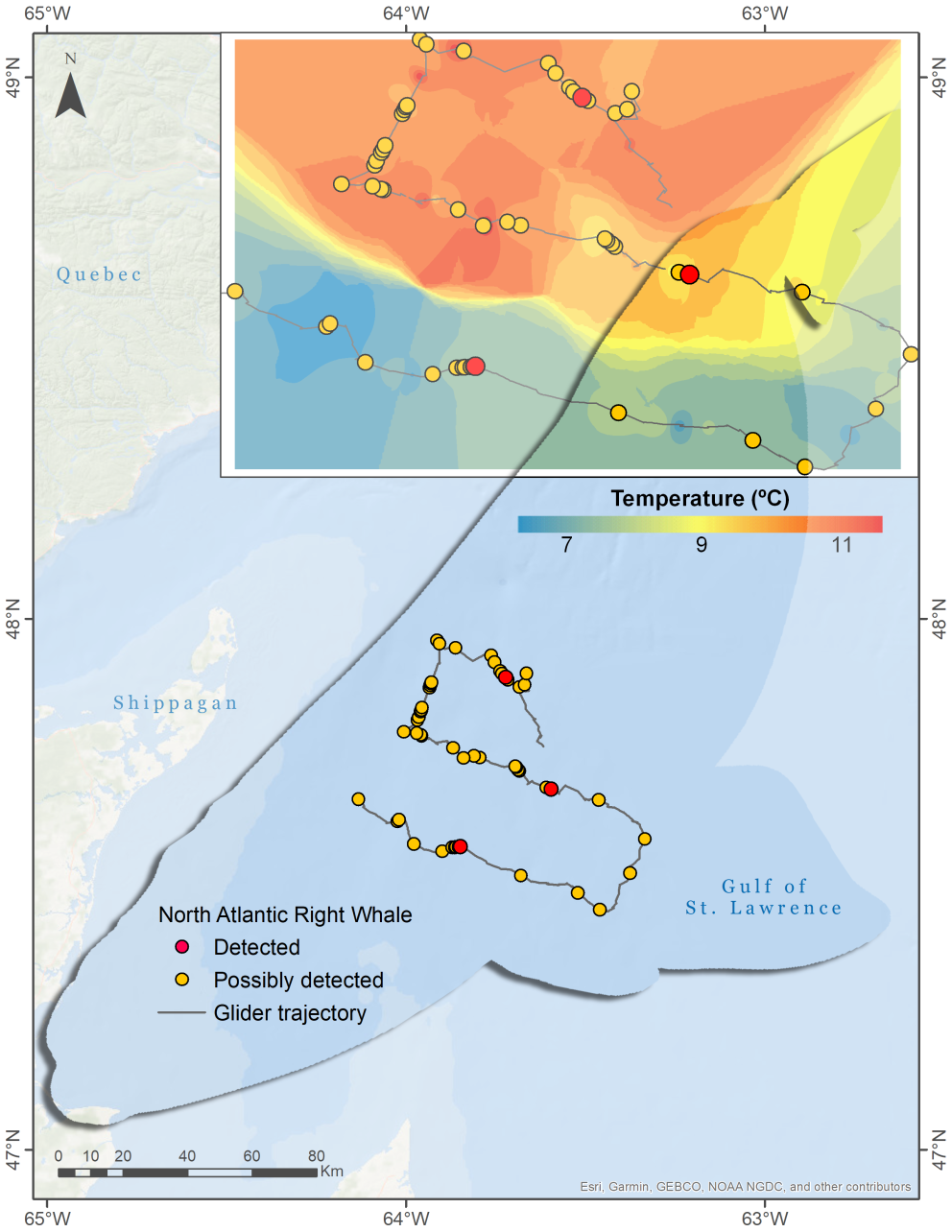Can we forecast whales like we forecast rain?

If you live in a cold, rainy place, you probably look at the weather forecast every day before leaving the house. To forecast the weather, meteorologists collect information of the conditions of the air, land, and ocean to predict when and where it will likely rain. My PhD project aims to forecast the occurrence of North Atlantic right whales in the Gulf of St. Lawrence, Canada. I am using underwater gliders, unmanned platforms that spend months at sea at a time, to detect whale calls, record ocean conditions (like temperature), and measure the amount of whale prey (small organisms called copepods) in the water. I will use that information to understand what conditions are appealing to whales when selecting a feeding area. The next step will be using the ocean and prey conditions to tell when and where whales are most likely to occur (like predicting clouds over your city). If I can forecast whale occurrence, our research group will be able to inform regulatory measures in fishing and shipping areas that can contribute to current conservation efforts for the critically endangered North Atlantic right whale.